Every year, when asked what I’d recommend people to see at Night Visions, I’m tempted to write “see everything” and call it a day. It would certainly be easier, and in many ways solid advice.
Night Visions has a staggering track record as far as festivals go, I don’t think they’ve gone a single year without at least a handful of must-see titles. Most years it’s double that amount.
Which means brevity is of no use here. Night Visions Maximum Halloween 3023 is upon us in just under a week, and I’ve gone through 15 films from their lineup for recommendations (and purchased tickets for an additional 5), which you’ll find below.
So, without further ado, here are my picks for the must-see films of the festival.
The Ones I Bought a Ticket For
Coming in hot from France is The Animal Kingdom, which utilizes magical realism for some David Cronenberg body horror for a striking tale of apocalyptic proportions. I’ve seen the trailer a handful of times, and I have no idea what to expect. Only everyone I know who has seen it has come away raving at the imaginative terrors in store.
Next up is my most anticipated film of the festival: Concrete Utopia. South Korean cinema always brings the goods, and this post-apocalypse scenario of societal collapse looks downright insane. The scope is limited to a single city, but its implications are global.
Heavy on the paranoia, fear, and epic set pieces, it looks like another stunner from the country that seems to deliver nothing but bangers every single year.
Nicolas Cage is an actor I’ve admired for my whole life, and one whom I’d love to interview one day. He’s always interesting on-screen, and his wild filmography is something few others could replicate. Cage can be an action hero, but he can also play a schlubby weirdo like nobody’s business.
In Dream Scenario, he gets to play to his strengths as an unassuming professor who begins to appear in the dreams of everyone around him. At first, it’s all fun and games, but soon the global attention turns hostile, as the dreams themselves begin to take shape of their own.
Released by A24 and directed by the immensely talented Kristoffer Borgli, Dream Scenario could be the breakout indie darling of the season.
I’m a sucker for folk stories and Americana, so naturally I’m all about Falling Stars, the alternate reality film where witches are real, shooting stars herald coming omens, and everyone awaits the next season with dread, as whispers spread across the countryside questioning the legitimacy of witches in the first place.
It’s already drawing comparisons to the films of Aaron Moorhead and Justin Benson, which is pretty much the biggest compliment I could think of. I have no idea what to expect, but I’m excited all the same.
Anything Junta Yamaguchi makes, I’ll be first in line to see. The mastermind behind the utterly delightful Beyond the Infinite Two Minutes is obsessed with time, and his latest is no exception.
Set in rural Kibune, the story picks up as guests of a fancy remote hotel find themselves trapped in a two-minute time loop. Nobody knows how they got there or why, but they’re not getting out. As everyone tries to solve the situation in their own way, secrets and interpersonal conflicts begin to reveal themselves, and soon everything gets out of hand in a way that every Yamaguchi story does.
If you haven’t seen any of Yamaguchi’s films yet, this is a great place to start. Once you experienced one, you’ll want to check out everything else. And then do it again, and again, and again.
The Documentaries
You Can Call Me Bill – ★★★★★
Deeply moving and surprisingly profound, You Can Call Me Bill is yet another beautiful meditation on cinema and life from one of the best film essayists around, Alexandre O. Philippe.
The setup is as immediate as they come: William Shatner talks to the camera about himself, his life, and his innermost thoughts. At 92, he knows this is the final act, the curtain call is around the corner, and he really doesn’t want to go. There’s still so much, too much, he wants to do. But if he must go, he hopes he could become a tree in the next life, one of those great pines that live for thousands of years.
At first, such emotional availability is startling. I couldn’t understand what I was seeing, or place myself in this dialog. After all, William Shatner is bigger than life. He’s a cinematic language all by himself. I don’t know William Shatner, but I know of William Shatner. Seeing him there, without his guard up, forced me to lower mine as well.
What follows is an intimate look inside Shatner’s mind and heart, all of it highly subjective, often contradictory, but always compelling. Shatner is a great storyteller, he has a knack for keeping us entertained even when he goes off tangent. Or perhaps especially when he does so. By the end, I was convinced that he’s also a great actor, one that, through actions of his own and those beyond him, never got the kind of fair shake he probably deserved.
Phillippe rarely interjects, and when he does it’s through gentle visual cues, prods, and callbacks to films both featuring and referencing Shatner. It’s incredible to realize just how immense his influence in pop culture is. But it does raise the question, does it dilute the presence of the man himself? I don’t think that has escaped Shatner, but it hasn’t deterred him, either. He is, warts and all, exactly as he presents himself to be.
This is a remarkable portrait. A melancholy and loving document of a life lived that never feels like it’s invasive or leery. We see just as much as Shatner allows us, and Philippe’s kind lens remains empathetic and understanding.
By the end, Shatner feels closer than ever, yet still a distant figure. In a way, he’s like one of the stars we see in the night sky. Unknowable and enigmatic, yet stirring something deep within us. Perhaps that’s what he wanted all along.
Enter the Clones of Bruce – ★★★★★
It’s a wild thing to witness a documentary that is so empathetic and loving about a subject so decidedly morbid. But that’s precisely the trick that Enter the Clones of Bruce pulls off, mostly because it allows the subjects to speak for themselves – with often surprising results.
In the aftermath of Bruce Lee’s untimely death, a whole cottage industry of Lee clones and exploitation flicks began to fester. Even the semi-official ones – utilizing stock footage of the iconic star – were little more than ghoulish endeavors to make a buck. But as the years went on, the exploitation films turned increasingly ambitious, to the point that they started to gain momentum and a presence of their own. They were still uncouth, but something about their eagerness captivated audiences.
Now, to be fair, none of these are what you could in good conscience call good films. They’re sleazy, run-and-gun-style schlock with little plot and less good taste. But some of them are arguably so wild, so patently bizarre, that they hold value.
What makes the documentary so fascinating is seeing how much or, in the most heartbreaking moments, how little illusion the people who made these films have about their work. Some are unrepentant, insisting they filled a market gap and made a pretty penny as is right. Others look back and wonder what kind of life they could have made on their own, without the shadow of Bruce hanging over them.
Combined with a thoroughly captivating and well-researched portrait of the wild 70s and 80s cinematic landscape, this introspection is immensely gripping. Instead of keeping this at arm's length, as most documentaries about lurid subjects tend to, Enter the Clones of Bruce goes for the emotional jugular. It gives a face and voice to the exploitation makers and forces us, many of who enjoyed these films in the past, to confront the reality that each of us is complicit in this cinematic grave robbing in our own way.
While that may sound confrontational, Enter the Clones of Bruce Lee is anything but. It doesn’t point fingers or moralize. But in humanizing and contextualizing a genre easily dismissed as fast food, it proves itself a valuable and indispensable tool for media literacy.
On top of that, it’s often funny and revelatory, and the films are immensely baffling. It is the perfect documentary for anyone interested in not just kung-fu and exploitation cinema, but the art of filmmaking in all its forms.
Mancunian Man: The Legendary Life of Cliff Twemlow – ★★★★
I have a soft spot in my heart for stories like these, tragic as they are. Because in the end, they’re testaments to passion, even if said passion is misguided and often willfully ignorant of reality.
Here, it’s the story of Cliff Twemlow, who really wanted to make action films. A bouncer turned stuntman, Twemlow shot his features on videotape and made them with budgets that could be, at best, described as limited. Before this documentary, I hadn’t even heard of him or his films. After seeing Mancunian Man, I don’t think I’ll be hunting them down, but that doesn’t mean I don’t think of his work fondly.
Much of the documentary lingers on financial woes and trying to find distribution, which isn’t all that interesting. But when the focus shifts to the inventive, dastardly, and often bizarre artistic choices that Twemlow made to get his films made, the documentary soars.
The stories the surviving members of the crew tell are wild and fascinating, and I could feel that despite the incredulity and much head-shaking, there is still a lot of fondness for the time everyone spent together. It didn’t amount to much, but it did amount to something, and sometimes that’s enough.
For genre fans, this is the kind of uplifting love letter to films that reminds us of how many stories there are of folks like Twemlow, Ed Wood, and countless others who didn’t make it big. It’s important that Mancunian Man is never mean, and never looks down at its subjects. It laughs with them, even as we have the power of hindsight to recognize that none of this was ever going to work.
It’s a celebration of failure, which, when done with the right kind of passion, is success in its own way.
Satan Wants You – ★★★★★
The Satanic Panic didn’t land in Finland until much later, and I remember how lingering elements of it still soured the air in the 90s. But in America, it was a cultural movement for a time that in many ways shaped the course of the nation for decades to come.
This remarkable documentary charts the beginnings of that hysteria, and the resulting evidence is more unnerving and horrifying than any fictional film. Using a mixture of talking heads, recorded testimony, and tastefully done recreations, it paints a picture of two disturbed individuals who, perhaps unwittingly, set in motion a chain of events that hurt untold thousands.
What really struck me about this investigation is how dispassionate it is. This could easily be an angry, scornful documentary, one that has every right to mock those responsible. Instead, it allows everyone, even those directly involved, a chance to speak. It isn’t objective, but the hands guiding it have far more empathy than I probably could muster.
Because the clearer the big picture becomes, the more troubling its implications become. Satan Wants You draws a clear picture from the mass hysteria to the failures of mainstream media, the conservative medical system, and society as a whole. None of this grew in a bubble, it took decades of neglect to reach a boiling point. Even as it never loses sight of the two lost souls at its core, Satan Wants You quickly becomes a massive tapestry of failure and fear that you can’t look away from.
After all, this isn’t some ancient history we’re talking about. Most of the people involved are still alive, just trying to move on with their lives. It’s not even the first hysteria to grip America, and certainly not the last.
If anything, Satan Wants You is terrifying because it so clearly argues that this will happen again, and again, because that’s just how humanity, not Satan, works.
The Big Pictures
Restore Point – ★★★★★
Directed with impeccable elegance and maturity by Robert Hloz, Restore Point is a staggering debut feature that stands proudly alongside its numerous influences.
Part Blade Runner, Source Code, the video game Deus Ex, and Chinatown, Restore Point is a superb cyberpunk noir thriller that understands its genre perfectly.
Set in the near future somewhere in Europe, Restore Point finds humanity in the next stage of our natural progression towards the big nothing. The cities are a mixture of crumbling architecture overshadowed by gaudy monstrosities of technological hubris. The forests are barren and littered with rusting detritus. But at least we have motion-controlled tablets and computers.
And there’s no escape from it, either. Thanks to a newfound technological breakthrough, humankind can now ensure their time on this planet doesn’t come to an unexpected end. With the use of Restore Points, they can save their consciousness on a daily basis, so if an untimely death should befall them, they resume their lives as if nothing happened.
But when a double murder leaves the victims with their Restore Points wiped, local cop Emma (Andrea Mohylová) finds herself embroiled in a deepening conspiracy that threatens the very fabric of society. The more she investigates, the deeper the mire goes, and in true noir fashion nothing is what it seems, and nobody is to be trusted.
Stylistically, Hloz borrows and expands from the likes of Christopher Nolan and Ridley Scott, but Restore Point never feels like a pale imitation. Instead, this is a bold continuation that feels like an artist joining in on an ongoing conversation.
With classy set pieces, an involving central mystery, and fantastic acting from the entire cast, there’s very little to fault in Restore Point. Sure, some of the pacing could be tighter (at just under two hours, it runs a little long), but that’s a minor complaint for anyone’s first film. Every time I found myself shifting in my seat, I couldn’t help but find something else to admire in this rich dystopian tapestry.
Whether it’s the realistic vision of a future, the Terry Gilliam-style recycled technology that feels tangible and real, or the gut punches that Hloz never holds back on, Restore Point is the kind of high-concept sci-fi that is a joy to discover.
See it now before the inevitable American remake.
Pandemonium – ★★★★
I’m not sure that I fully understand Pandemonium, but I connected with it on an emotional level. Not a good emotional level, mind. This is a punishing, often misanthropic, and miserable viewing. But, at the same time, it never feels anything but sincere – even if some of it is a deliberate provocation.
The episodic structure follows a biblical path in its descent into hell. After a fatal car crash leaves two men in limbo, we’re told the rules from the start. There is no escaping this, you’ve already been judged. Reprieve is for those who some vague, unknowing force has already welcomed to their bosom. For us, it’s the red, fiery gates of oblivion, and a long, horrifying path of pain before the end.
As we descend, we catch glimpses of increasingly disturbing fates. The first, featuring a standout performance by Manon Maindivide, is the story of a little girl, her potentially imaginary friend, Frank, and the horrific acts of violence they commit together. And that’s the lightest story in the film.
The dreamlike structure follows the rules of any nightmare, meaning there are very few, and even those can be negotiated. Writer and director Quarxx toys with his audience with gleeful abandon, and at certain points, I questioned whether all of this is necessary. It feels cruel, but that’s kind of how religious texts read, so it’s not like Quarxx is off-base.
I can’t say that I enjoyed my time with Pandemonium, but I couldn’t look away, either. It’s a horror film with a singular vision, for better and for worse, and those willing to be swept away by its nightmarish spectacle will find a lot to love.
Just be prepared to have a soft landing coming out of the theater. I didn’t and spent the rest of the night with unrelenting anxiety.
Critters 2: The Main Course – ★★★
I saw Critters 2 for the first time when I was way too young, which is precisely the right age to see something like this. Watching it again some 30 years later, I’m glad to see it has aged exactly as gracefully as one would expect.
This is still a wild and silly monster movie that is part Aliens, partly a weird Western pastiche, and oddly funny in places it probably shouldn’t be. In short, it’s a delight.
Upon release, people sniffed that it wasn’t as good as the original, but it’s hardly like that one is some cinematic masterpiece in the first place. Instead, this direct sequel does exactly what it should: it brings back the comedy horror elements and amps them up. More of the same is more of the same, and if the original formula works, why go and change it?
As an 80s throwback, it features some wonderful character acting from B-movie stars of its era. The effects are lovingly handcrafted, and director Mick Garris wrings out everything he can from the sparse script that’s there only to get us to the next scare.
It’s not high art, and it’s not the best thing Garris has directed, but damn it if isn’t a lot of fun.
Sacrifice Game – ★★★★
A holiday movie that’s also a home invasion film with traces of Satanic Panic, demon possession, and even Home Alone – you can’t say that Sacrifice Game lacks ambition!
For a film that starts with a deeply distressing murder that echoes the Sharon Tate massacre, Sacrifice Game is a surprisingly tastefully crafted chiller that takes its time to go completely off the rails.
It’s a wild mix of genres and scares that, in lesser hands, would easily fall too much in any one direction. A nudge in any direction and it gets too broad, a step in another and it’s too dark. But director Jenn Wexler balances each element with supreme confidence, and the resulting feature is what you could easily summarize as classy. It’s the kind of horror film that loves the genre and knows what it wants to be. As a result, I had a bunch of fun even when the film was at its bleakest.
Sacrifice Game is one of those films that’s surprisingly easy to recommend for a horror film. It ticks all the boxes gorehounds could want, but it’s also surprisingly mindful of crowd-pleasing moments and intentional winks to the audience. I could easily see it finding a place in the holiday film rotation of genre fans for years to come.
The Mainstream Picks
Blackberry – ★★★★
While it’s easily the safest and most mainstream film you can find on the roster, that doesn’t mean Blackberry is something you should dismiss, either. It doesn’t do anything new with the genre, and it’s no Steve Jobs (the Aaron Sorkin one), this is still a charming and engaging portrait of a company that at one point ruled the world.
My hesitations with these kinds of films are always the same. To condense the timeline, you have to cut a lot of corners and portray a lot of people as caricatures. I have a hard time believing the real Mike Lazaridis was the kind of magical autist as Jay Baruchel portrays him. Neither do I believe the real Charles Purdy was as big and operatic as Night Visions icon Michael Ironside.
But that’s the concession you have to make when you buy a ticket to one of these films. You accept you’re seeing history as told by numerous hand-me-down stories, like a game of broken telephone, ironically. If you can get over that hurdle, chances are you’ll enjoy the geeky pleasures of Blackberry quite a bit.
Because when the film focuses on the actual creation of the devices, the meticulous craft behind selling them, and the outrageous lunacy of corporate one-upmanship, Blackberry is a blast. When it doesn’t, it’s nowhere near as interesting as it thinks it is.
Luckily, even at two hours in length, Blackberry is a nice and brisk experience that surprisingly doesn’t outstay its welcome. There are pleasures aplenty in witnessing even an amalgamation of the madness that overtook the country when this device was created. In its finest moments, Blackberry serves witness to a cultural touchstone that is both deeply nostalgic as it is melancholy.
Things were good, it says. If only they could have stayed that way. In a whirlwind of cold technology, it’s that deeply emotional plea that rings truest, and makes the big picture feel special.
The Last Voyage of the Demeter – ★★★
Artfully crafted and designed for a big screen experience, The Last Voyage of the Demeter is a fun and gory ride that, for me, still doesn’t quite stick the tonal landing.
But this is where horror films get very subjective. For me, this is a film that’s surprisingly cruel and mean in the wrong ways. Especially for a story that, in the end, wants to have that big promise of a sequel too. The scares range from shockingly effective to downright nasty, and I found myself asking: “Why?” a few times too many.
At the same time, my friend thought it was a blast. For them, it was exactly the kind of unrelenting terror that made the experience worthwhile. The brutality and meanness were a part of the deal.
Depending on which group you land in, you’ll either like or love Demeter. The best thing I can say about it is that it’s not boring, and it won’t leave you cold. Its visual flourishes and spectacular setting keep things interesting, and the stellar cast of genre veterans sell the terror beautifully.
It’s just a bit too much. You’ll have to decide what that means for yourself.
The Surprises
Abruptio – ★★★
I wrote something in my notes about halfway through Abruptio that sums up everything nicely: “I blame Peter Jackson”.
This isn’t to say that Abruptio isn’t its own thing and doesn’t have a whole lot of unique weirdness to its name, it does. But the legacy of Jackson’s insane early works is still heavy in its DNA. There are moments, especially as it becomes more unhinged, that kept bringing me back to Meet the Feebles and Bad Taste.
That’s not necessarily a bad thing, either. After all, a part of the ride is to find something to hold onto. Anything that grounds the insanity. Because otherwise, I can’t even imagine how to approach something like this. A bleak, deeply black comedy and horror film that for some inexplicable reason is brought to life entirely by life-sized puppets.
It’s not even that the film is winking at you about it. Instead, Abruptio is the kind of film that stares you down while performing the weirdest acts imaginable, just daring you to look away or blink first. The humor comes from the sheer gall and hubris, and the insistence to never break the joke.
At a little over 90 minutes, that kind of dedication does come with diminishing returns, and it doesn’t quite entertain all the way. But this is such a bizarre experience that it almost doesn’t matter. I wanted to see it to the end simply because, well, fuck if I was going to blink first.
It’s not a joke for everyone, but those who get it are in for a treat. I’m not sure what that treat is, or what it tastes like in the end, but it’s surely something you haven’t experienced in a long, long time.
Door – ★★★★
This is one of those delightful time capsules that sneaks up on you without warning. Recently rediscovered and restored by Third Window Films, Door is a startlingly prescient and relevant thriller that chilled me to the core.
Made in the late 80s by genre veteran Banmei Takahashi, Door is one of those rare films that is decidedly low-budget, Giallo-infused, yet so smartly written and composed that it overcomes its genre limitations with ease.
Set in an anonymous apartment block somewhere in Tokyo, Door is a claustrophobic and unnerving story of a lonely housewife left alone with her son, who is tormented by a door-to-door salesman hellbent on entering their lives. What begins as a simple, if terrifying, encounter through a locked door quickly escalates to perpetual torment our hero can’t escape from.
Deliberately paced and staged, Door might move a bit too slow for some, but it’s the kind of thriller that pays off in a spectacular ending, made better by the long wait. As Takahashi pulls out every trick in the book, including a spectacular single-shot take reminiscent of Brian De Palma at his finest, Door reveals itself as the most engaging horror film you’ll have the pleasure of seeing all year.
ETV – Extra Terrestrial Visitors – ?????
I’m a bit sad that I watched this one on my own. Mostly because it’s such a hysterically weird experience that I felt like I was going insane, but also because I wanted to share that insanity with others.
This deeply cynical and bafflingly inept E.T. ripoff comes courtesy of Spanish schlockmeister Juan Piquer Simon, and true to its origins, it defies any human explanation. The whole thing feels like an exercise of extra-terrestrials attempting to behave like humans, and the indescribable plot must be the result of a drunken night of Madlibs.
Everything about it feels wrong in some way. The pacing is either too slow or too fast, nobody speaks in a way that feels remotely human, there are brief asides that come out of nowhere, and it feels like a passion project for someone who never experienced a human emotion before.
Needless to say, I loved it. I think you will too. Bring your friends, and don’t tell them anything about what they’re about to see.
Hostile Dimensions – ★★★
A micro-budget film with big high-concept ideas, Hostile Dimensions suffers from an unexpected overinflation of multiverse films flooding the screens, and a runtime that’s far too long for the story it’s telling.
After a vlogger disappears through an inexplicable door standing in an abandoned locale, two bloggers decide to find out what exactly happened – and how this door works in the first place. After getting their hands on the mysterious entryway, they begin to document their experiments with a power they don’t understand, and it isn’t long before things go from strange to terrifying.
The setup is a good one and the game cast sells the thrill and terror of the unknown expertly. But Hostile Dimensions takes too long to get going, and then stalls for another stretch as it tries to explain itself when it really doesn’t need to.
This is also a found footage story, so you’ll have to go along with people filming things even when it doesn’t make sense to. Some moments feel too artificial with their staging because of it. But then there are singular bits, like a chase through multiple dimensions, that showcase the tremendous promise this idea and presentation hold.
Hostile Dimensions would work better as a short film, but even in its current form, I think it’s worth your time simply for the experience and the potential.
When it goes with its own haphazard logic and lets the cast explore the unknowable mystery of time and space, it’s a tremendously fun romp. A few of the opened doors reduced me to hysterics, which is more than I can say for many other box office monstrosities dealing with similar topics.
And if you can point me to another time-traveling, multiverse-hopping film with a threat of panda death, I’ll be glad to see it. At its best, Hostile Dimensions is unlike anything else out there, and a fantastic calling card for its cast and crew. I’ll be thrilled to see anything they make next.

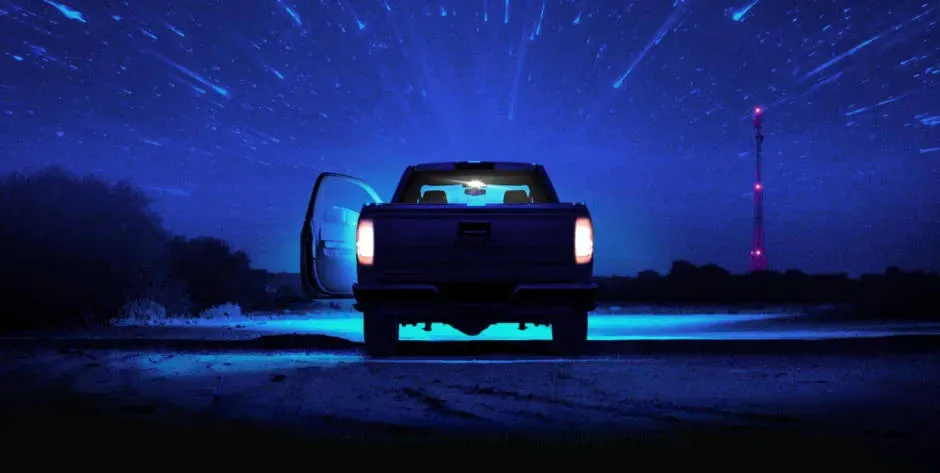

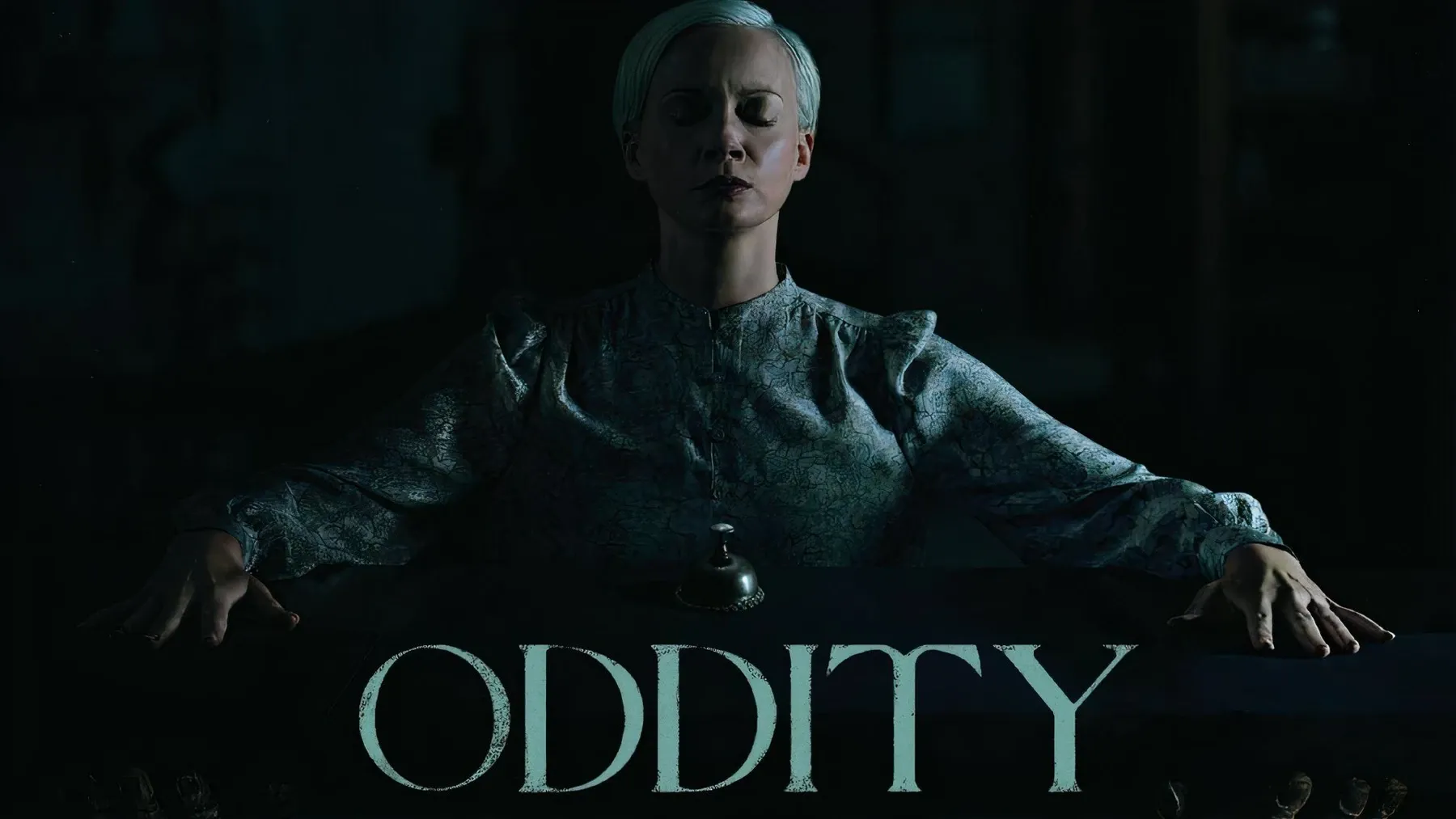

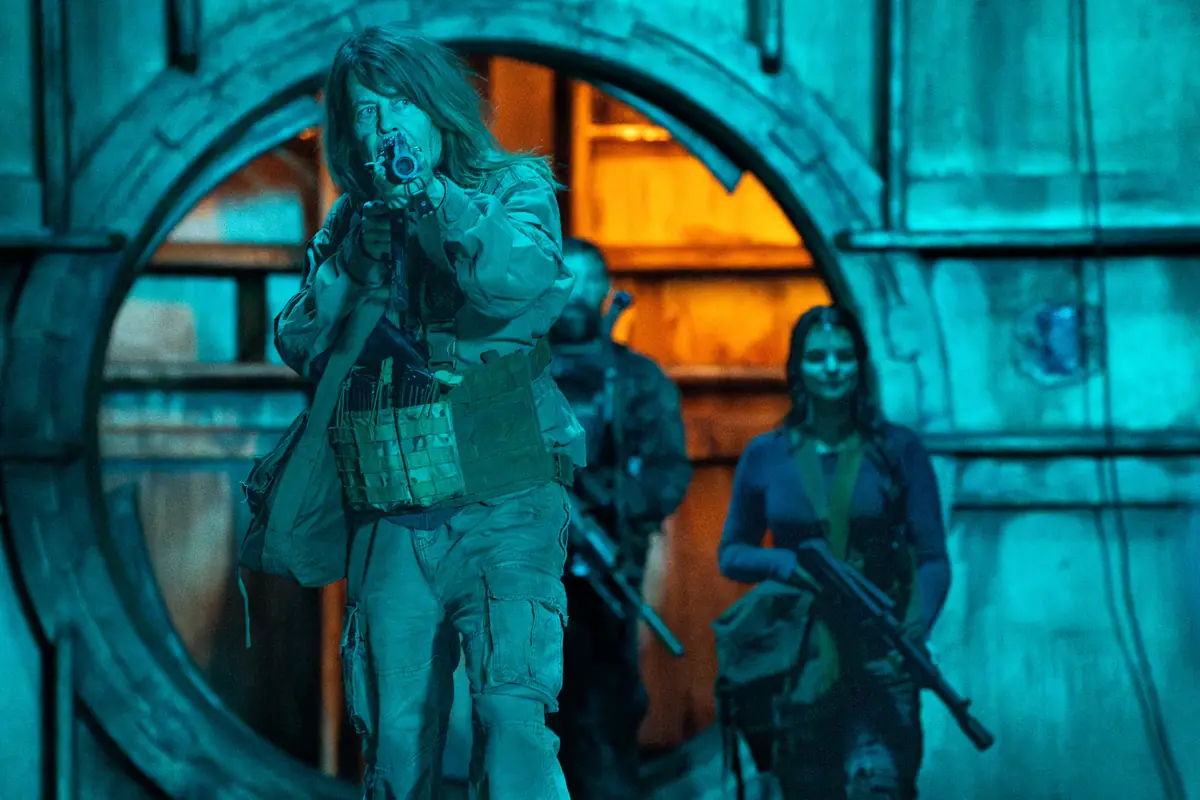

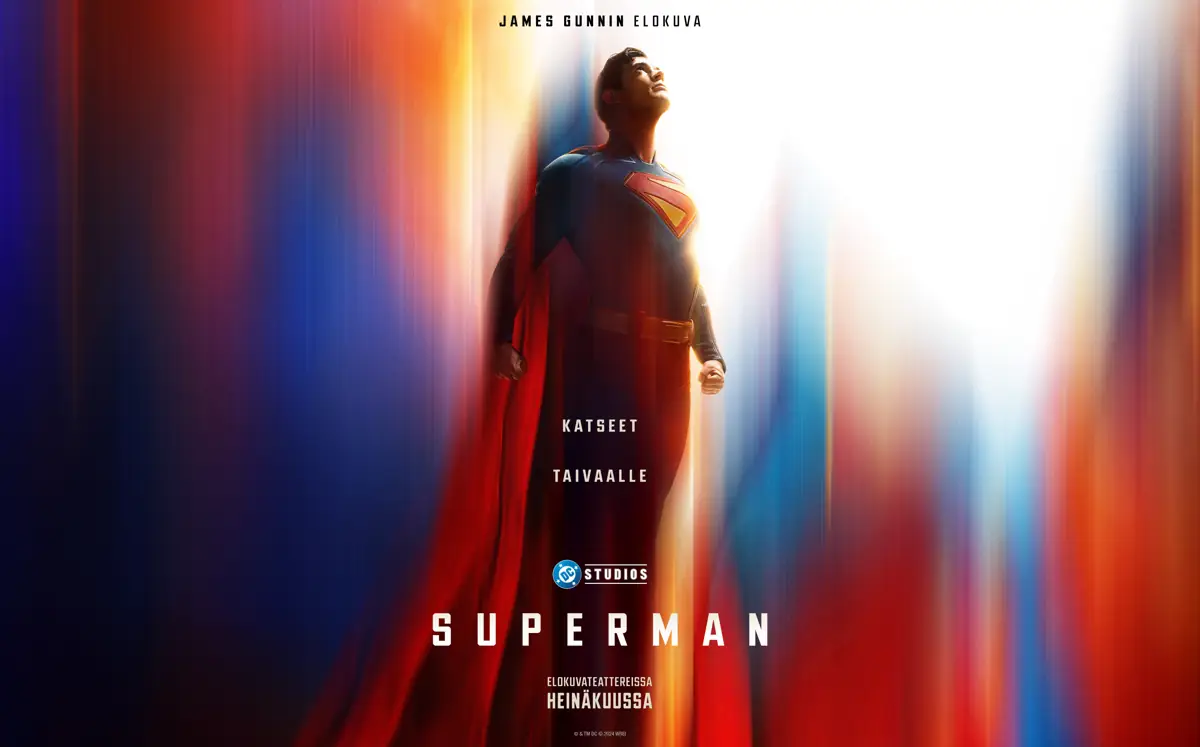

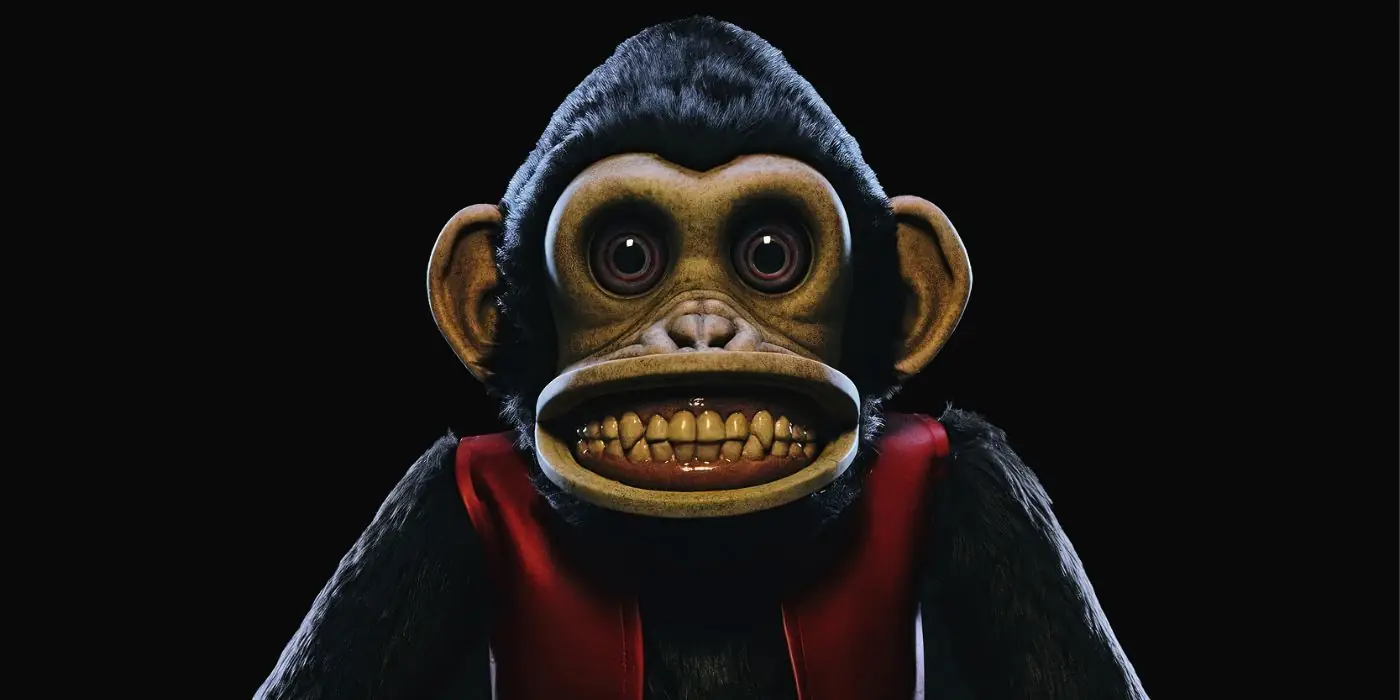
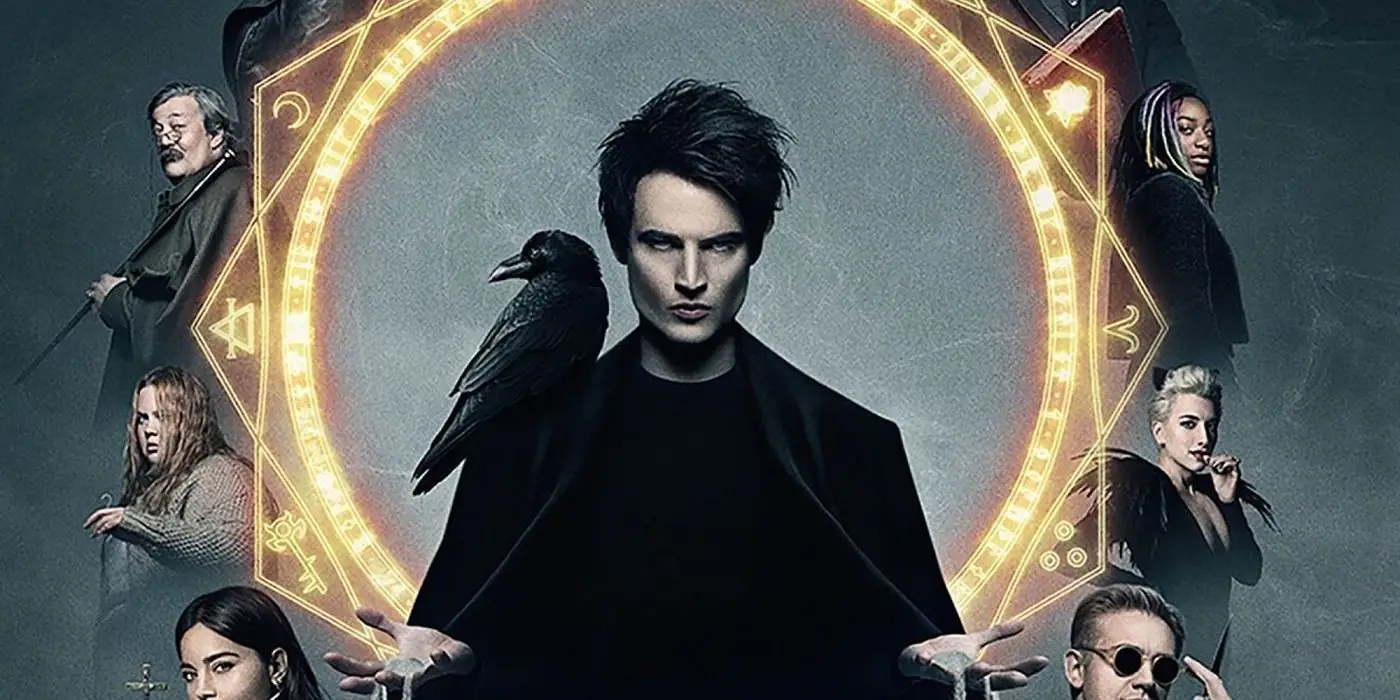
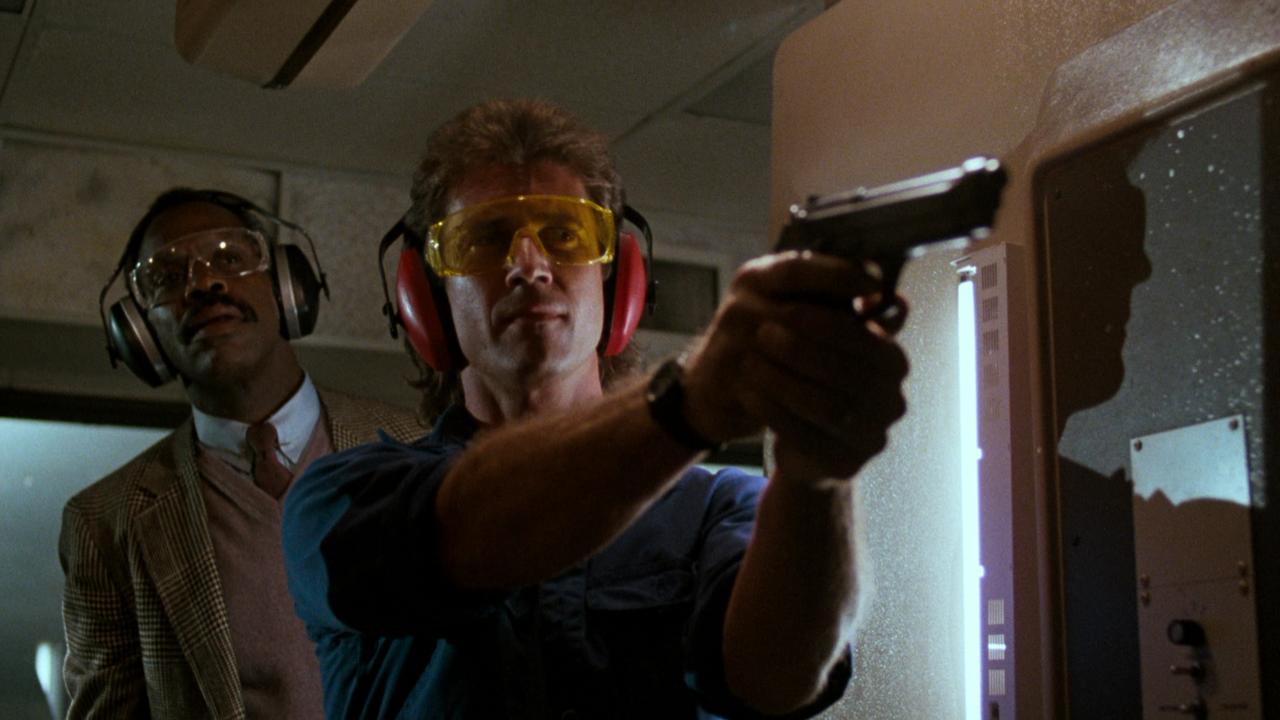


Discussion